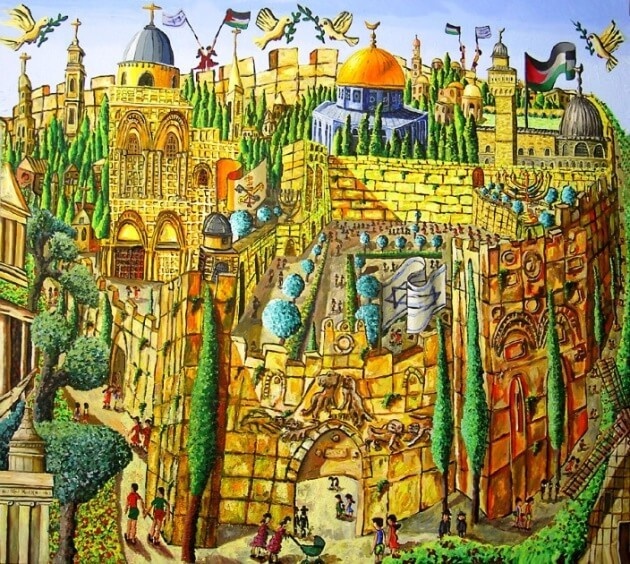The Sages taught in Ta’anit 30b:
כׇּל הַמִּתְאַבֵּל עַל יְרוּשָׁלַיִם — זוֹכֶה וְרוֹאֶה בְּשִׂמְחָתָהּ (תענית ל:)
“All who mourn the destruction of Jerusalem will merit to see it in its joy.”
At first glance, this statement seems peculiar. Why did the Sages say that those who mourn Jerusalem’s destruction will merit seeing it be-simchata - “in its joy”? Would it not be more logical to say that they will merit seeing Jerusalem be-vinyana — when the city will be restored and rebuilt? After all, our primary hope and prayer is for the rebuilding of Jerusalem.
Rav Kook offered an insightful interpretation for this statement. The Sages knew that a time would come when Jerusalem would be rebuilt, and everyone alive at that time would witness its physical reconstruction. This includes even those who did not mourn for Jerusalem’s destruction.
The Sages chose their words with great precision. Indeed, many will witness the rebuilding of Jerusalem. But only those who were grieved by Jerusalem’s destruction will merit to behold the city “in joy.” Only those who mourned its desolation will experience the profound joy and simchah as Jerusalem is restored to its former splendor
Rejoicing in Jewish Independence
In the exhilarating days following the 1920 San Remo conference, when the League of Nations adopted the Balfour Declaration, Rav Kook remarked
“There are some Jews for whom international recognition of the Jewish people’s right to its land fails to inspire joy. This is because the primary focus of their mourning is the spiritual destruction of Jerusalem and Eretz Yisrael. The bitter humiliation of the Land of Israel being subjected to foreign rule does not trouble them.
But for those who always felt a deep sorrow, not only for the destruction of Jerusalem and the desolation of the Land, but also for the lack of Jewish sovereignty in our homeland... the international declaration that the Land of Israel must return to the people of Israel is a source of great joy. These individuals merit ‘to see Jerusalem in its joy.”
Repairing the Baseless Weeping
Rav Kook’s dictum for the month of Av also speaks of our joy in witnessing the initial steps of redemption:
גִּילַת עַם בִּשְׁבִיבֵי אוֹר יְשׁוּעָה
תְּקוֹמֵם אֲשֶׁר הָרְסָה בִּכְיָה שֶׁל חִנָּם
“The people’s joy in sparks of redemption
will rebuild what was destroyed by baseless weeping.”
The term “baseless weeping” (bechiyah shel chinam) refers to the episode in which the spies sent by Moses spoke against the Land of Israel, causing the people to despair and weep without cause. This sin requires a profound correction. How do we rectify their cries of despair?
Rav Kook explained that the repair, the tikkun, for this sin is through teshuvat ha-mishkal — a repentance that counterbalances the initial wrongdoing. To counteract the baseless weeping, we must respond with a tangible and enthusiastic joy as the Land of Israel is rebuilt, stone by stone.
We need not wait until the final stages of redemption to experience this profound sense of excitement. Even if the redemption is only partial - even if we only witness “sparks of redemption” - we should still feel immense joy. We should actively work toward hastening the process of redemption with all our strength.
As Rabbi Yehuda HaLevi wrote at the end of his classic work, The Kuzari:
“Jerusalem will be rebuilt when the Jewish people yearn for it with the deepest longing, so that they cherish even her stones and dust.”
(Adapted from Mo'adei HaRe’iyah, pp. 567-568)
By Rabbi Chanan Morrison


No comments:
Post a Comment